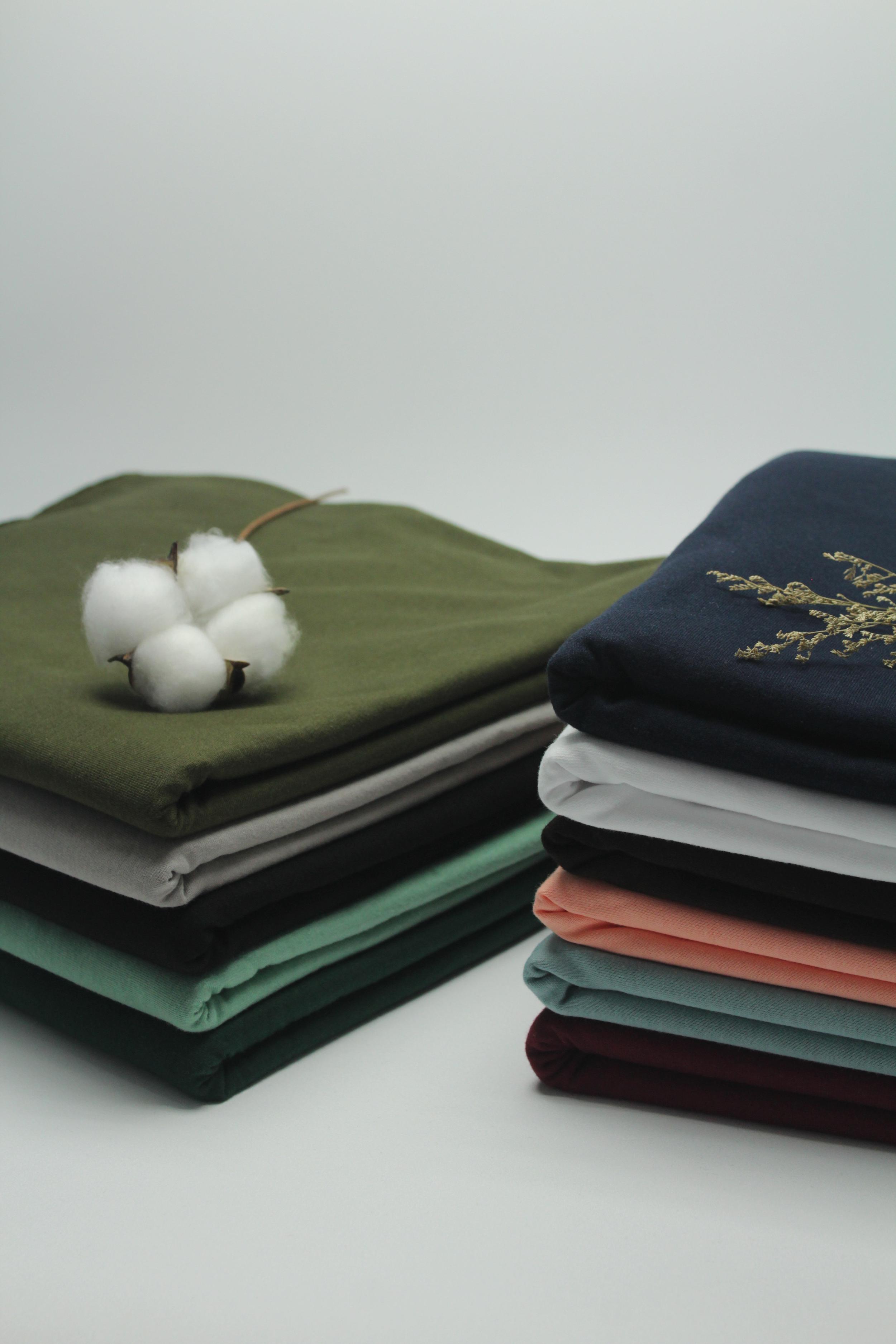
Sustainable Fabrics
As fashion addresses the impact of the industry's global footprint, new sustainable fabrics are being introduced into mainstream manufacturing. However, labels can be confusing these days. Greenwashing, using terms to suggest the fabrics are environmentally sound when they are anything but, has become a major issue. Consumers think they are supporting environmental change while being deceived by manufacturers’ buzzwords.
Ultimately, the harvesting and treatment of textiles & fabrics determine our clothes' environmental impact. the best way to recognize fabrics is by identifying the origin and composition of the fibers.
Now that CRM’s, (Customer Relationship Management), are being implemented into the fashion industry, consumers will now be informed as to each piece’s origin, fabrication, and manufacturing process. This will demand an ethical chain of accountability and transparency.
HERE IS A LIST OF THE MOST SUSTAINABLE FABRICS:
Natural Sustainable Clothing Fabrics (vegan)
-Organic Cotton (grown without pesticides, fertilizers & processed without any chemicals)
-Recycled Cotton (produced using either post-industrial or post-consumer waste)
-Hemp (a carbon-negative raw material that actually absorbs CO2)
-Linen (similar to hemp but derived from the flax plant)
-Bamboo Linen (Look for organic bamboo in raw form)
-Cork (Harvested from the cork oak tree which is part of a unique ecosystem, supporting a range of plant and animal species)
Recycled Synthetic Sustainable Clothing Fabrics (vegan)
-ECONYL ™ (Recycled Nylon)
-Recycled Polyester or RPET, (recycled plastics)
-Deadstock Fabrics (recycled types of sustainable Fabrics)
Sustainable Semi-Synthetic Clothing fabrics (mostly vegan)
-Lyocell (a type of Rayon made from the pulp of Eucalyptus trees)
-Modal (made from Beech trees)
-Bamboo Lyocell (bamboo viscose)
-ECOVERO ™ (sustainable Viscose)
-Pinatex or Cactus Leather (pineapple used as a leather replacement)
-Banatex ™ (Banana plant pulp fabrics)
-Scoby Leather (Symbiotic Culture of Bacteria & Yeast, vegan leather)
-S.Cafe ™ (turning coffee grounds into sustainable yarn)
-Brewed Protein (fermenting sugarcane)
-Apple Leather (made from the waste materials of the apple industry)
-Woocoa (made from hemp, coconut fibers & mushroom enzymes)
-Cupro (recycled cotton garments, or cotton linter)
-Q Milk (a milk protein byproduct of the dairy industry)
Natural Animal Fabrics (Non-Vegan, sustainable depending on fabric source)
-Sheep Wool (Always look for ethical certifications on garments)
-Merino Wool (a type of sheep with wrinkly skin which yields more wool)
-Alpaca Wool (considered one of the most Ethical wools)
-Cashmere (cashmere goats raised in the Asian mountain regions)
-Camel Wool (Bactrian camels shed naturally to create this fabric)
-Yak Wool (sustainable alt. To cashmere, Yaks shed profusely year-round)
-Up-cycled or Vegetable Tanned Leather (ethical leather, making the most of a material that’s already done its damage)
-Down (feathers from ducks or geese, look for certifications)
-Peace Silk (uses a humane type of sericulture and verifies its production under the World Fair Trade Organization Guarantee system)
As we become more aware of new fabrics and technologies, it’s important that we understand and look for certifications to confirm manufacturers’ claims. Here is a list of certifications to look for:
-Global Organic Textile Standard (gots)
-Organic Cotton Standard (OCS)
-Better Cotton Initiative (BCI)
-Bluesign TM
-Global Recycle Standard (GRS)
-Recycled Content Standard (RCS)
-Oeko-Tex (Provides strict criteria for organic cotton standards)
-USDA-Certified Organic
-Forest Stewardship Council (FSC)
